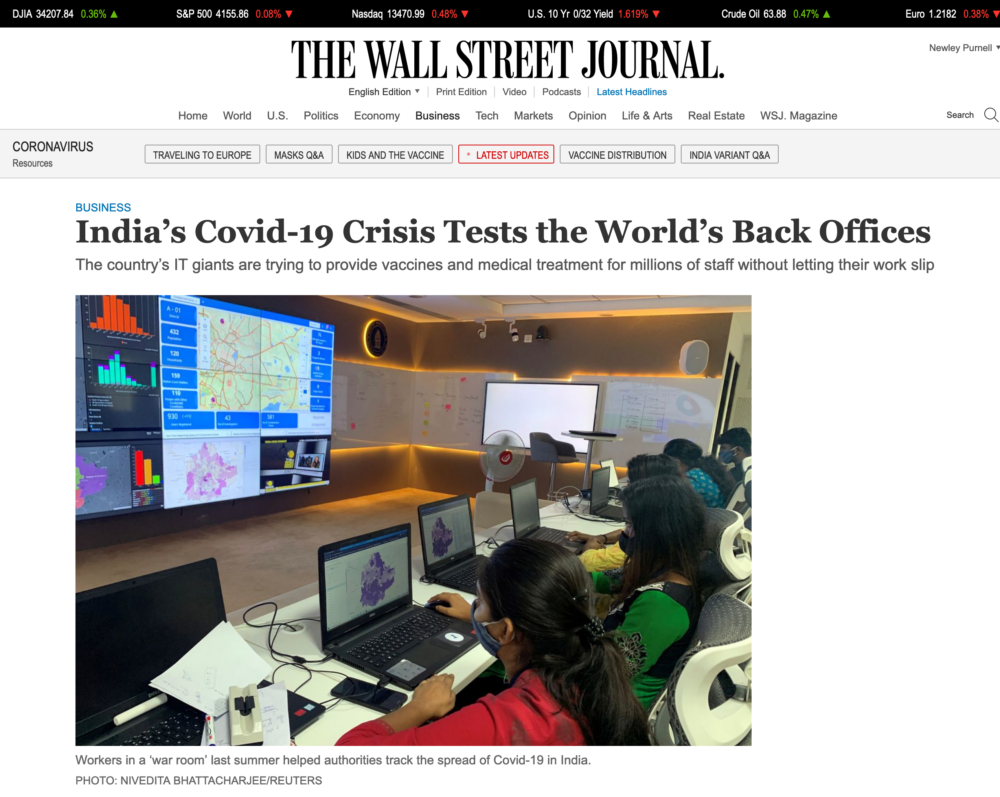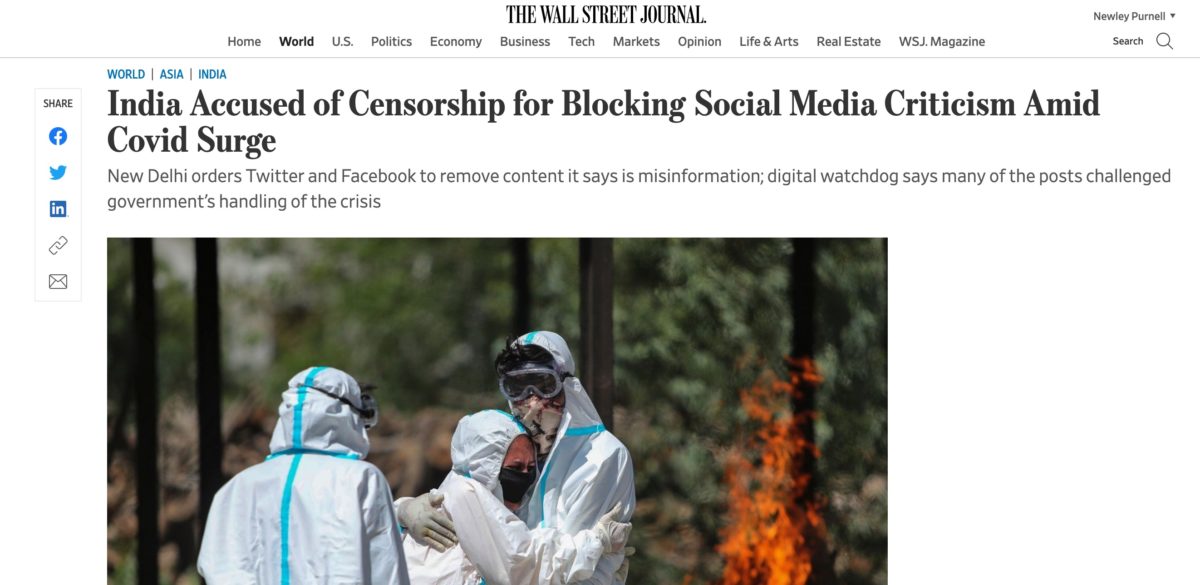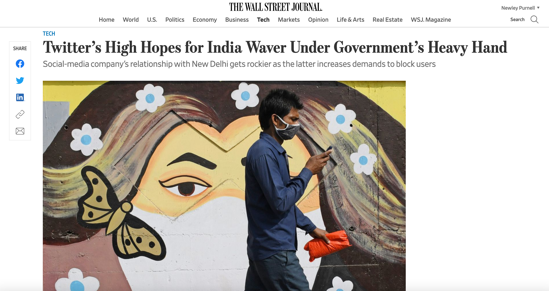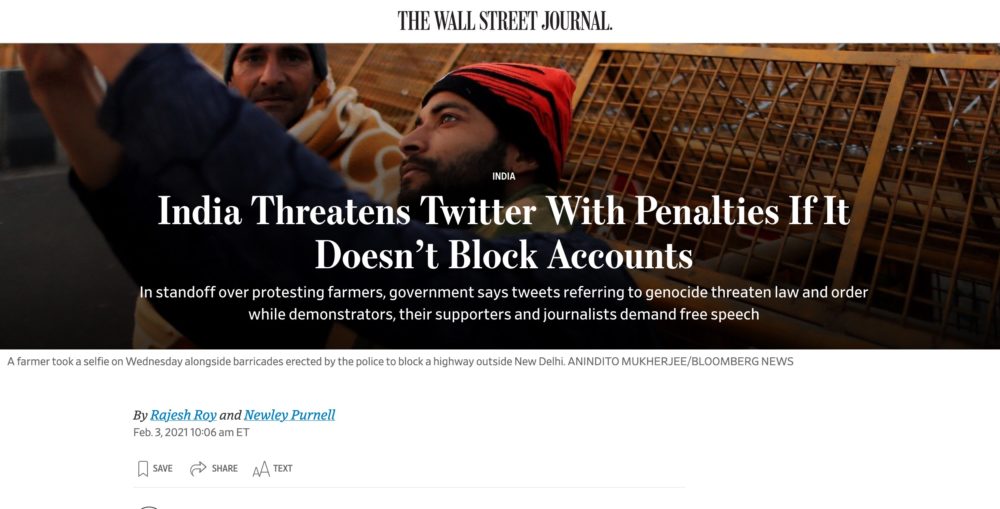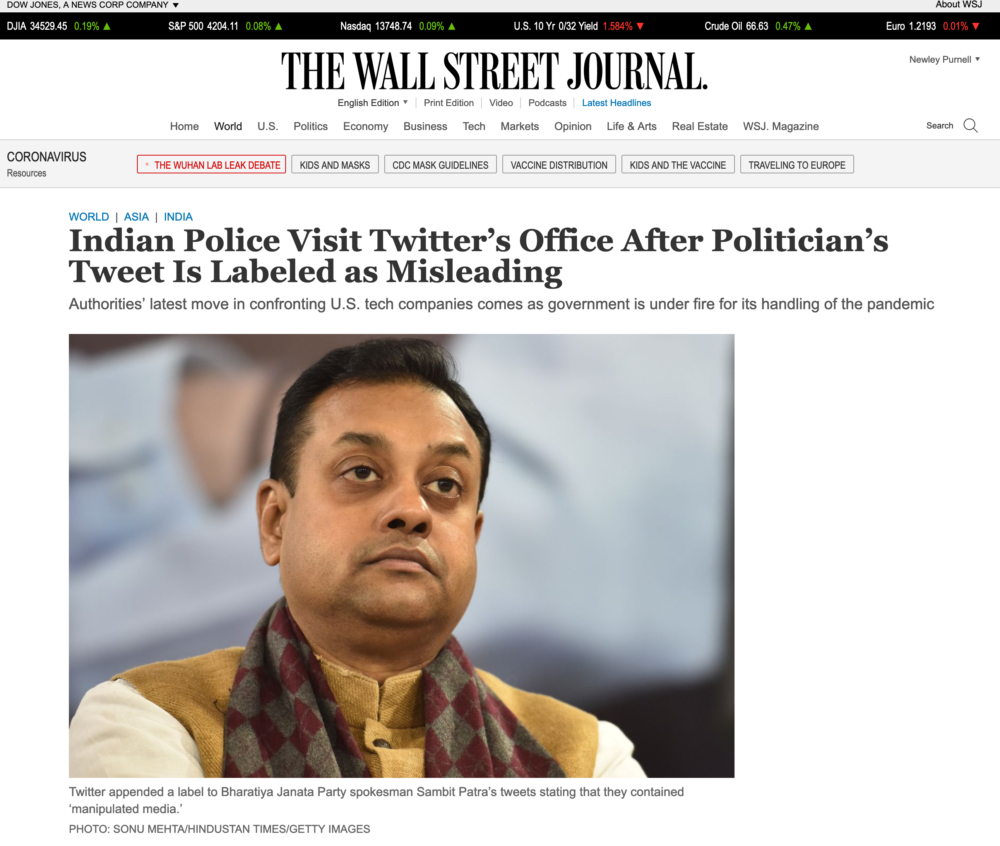
That’s the headline on a story I wrote that run on Tuesday. It begins:
Indian police visited Twitter Inc.’s office in New Delhi to investigate the company’s labeling of tweets from a ruling party spokesman as misleading, the government’s latest move against U.S. tech platforms amid criticism over its handling of the pandemic.
Sambit Patra, a spokesman for Prime Minister Narendra Modi’s Bharatiya Janata Party, in posts last week shared what he said was a document from the main opposition party purporting to show instructions for criticizing Mr. Modi’s handling of the Covid-19 pandemic. India has in recent weeks reported record highs of daily cases and deaths, making it the world’s worst current outbreak.
Twitter appended a label to Mr. Patra’s tweets stating that they contained “manipulated media.” A company policy prohibits the posting of images or videos that Twitter determines may be doctored and could cause harm.
Click through to read the rest.
